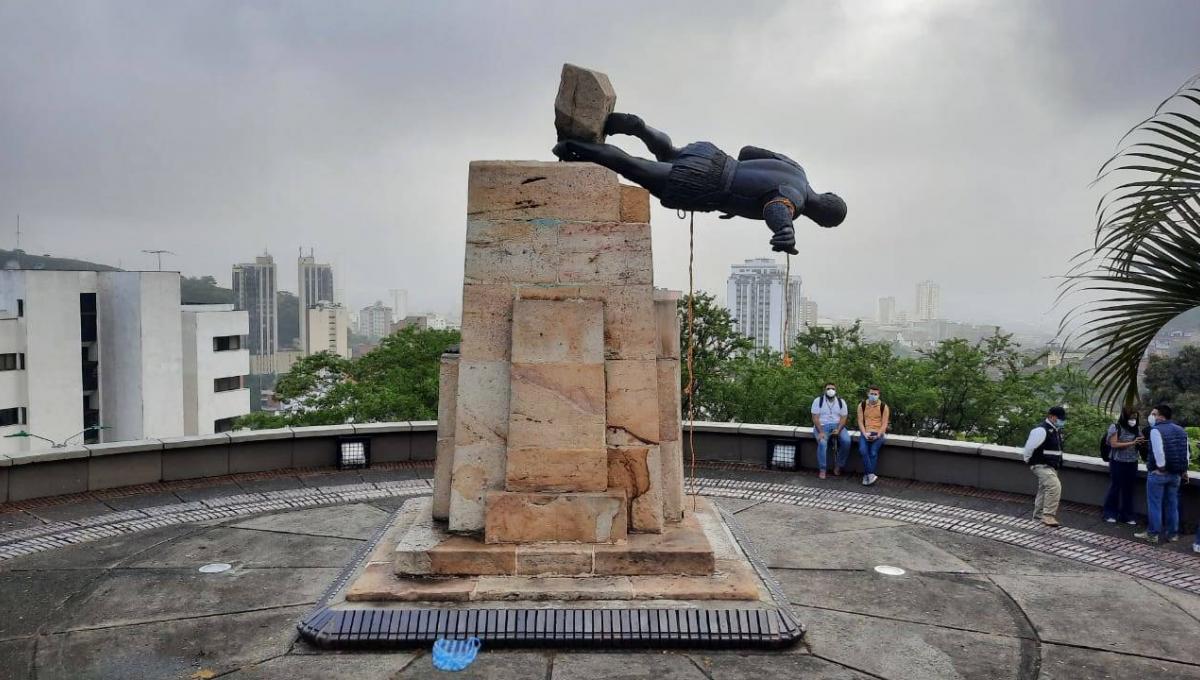The study group/research hotbed Changing narratives: New memory devices in public space in Colombia is an interdisciplinary group formed by 10 students of art, design, architecture and art history, and coordinated by Professor Edgar Guzmanruiz of the Art Department of the Faculty of Arts and Humanities of the Universidad de Los Andes in Bogotá, Colombia, whose focus is the elaboration of collective memory through new memory devices or artifacts of memory in public space.
JUSTIFICATION AND RESEARCH BACKGROUND
Public space is not only the place where the collective transits, or has encounters in their work or leisure time, but it is also the stage where the collective memory of a society is built. Through memory devices or artifacts such as sculptures, statues, monuments, memorials, places of commemoration, artistic proposals, etc; bridges are drawn with the past, famous people are honored, historical events are remembered, collective rites are performed, and in general, the achievements and frustrations of a social group are projected.
A series of violent demonstrations in different places in the public space of several Colombian cities since April 2021, with roots in the last months of 2020, has brought as a consequence, in addition to many deaths and injured, the destruction and demolition of several monuments, statues, memorials, and urban infrastructure. Numerous are the causes of these social movements, which in a matter of a few months have caused many of the existing sculptures and monuments that were previously perceived as “invisible” or outdated to revive and be perceived as enemies so that their presence was questioned and generated a widespread feeling of iconoclasm.
Part of the causes of these social movements has their origin after the signing of the Peace Agreement in 2016, where the growing worldwide historical revisions and only partial perception of “change” or “transformation” with the so-called Post-agreement or Post- Conflict in society after the treaties between the government and guerrilla groups, make Colombia increasingly driven to confront its history and to seek new ways to examine and reflect on it. The catastrophic social consequences of the lock-in during the COVID-19 pandemic with its accelerated increase in social inequality and widespread impoverishment, a growing sense of youth distrust in the future and politicians, repeated police abuse scandals, a series of controversial tax reforms, and a generalized sense of frustration and anguish was the straw that broke the camel’s back.
Today’s society in Colombia is “forced” to answer the following questions: is this new iconoclasm the reflection of a need to re-write “History” and rather tell other stories? What will we do with the existing monuments and statues, or sometimes with the uncomfortable heritage left by our ancestors? Is the word monument already obsolete or is it still possible to erect a monument to something or someone? How can we create new devices or artifacts of memory that in better ways elaborate the conflicts and reflect new representativeness demanded by the present and the future society, differentiating them from the monuments and memorials of the past that no longer fulfill this role? How should these new devices or artifacts of memory in the future be conceived in order not to be destroyed? Should new ways of naming and thinking these objects appear? How do we create new artistic forms that correspond to current dynamics and invite us to rethink our history? How do we “produce” these devices or artifacts of memory concerning democratic thinking? Is it possible to “design” collective memory in a society whose way of elaborating the past has been through oblivion?
STUDY GROUP OBJECTIVES
The study group seeks the possibility of providing answers and findings to these questions through academic and cultural exchange

